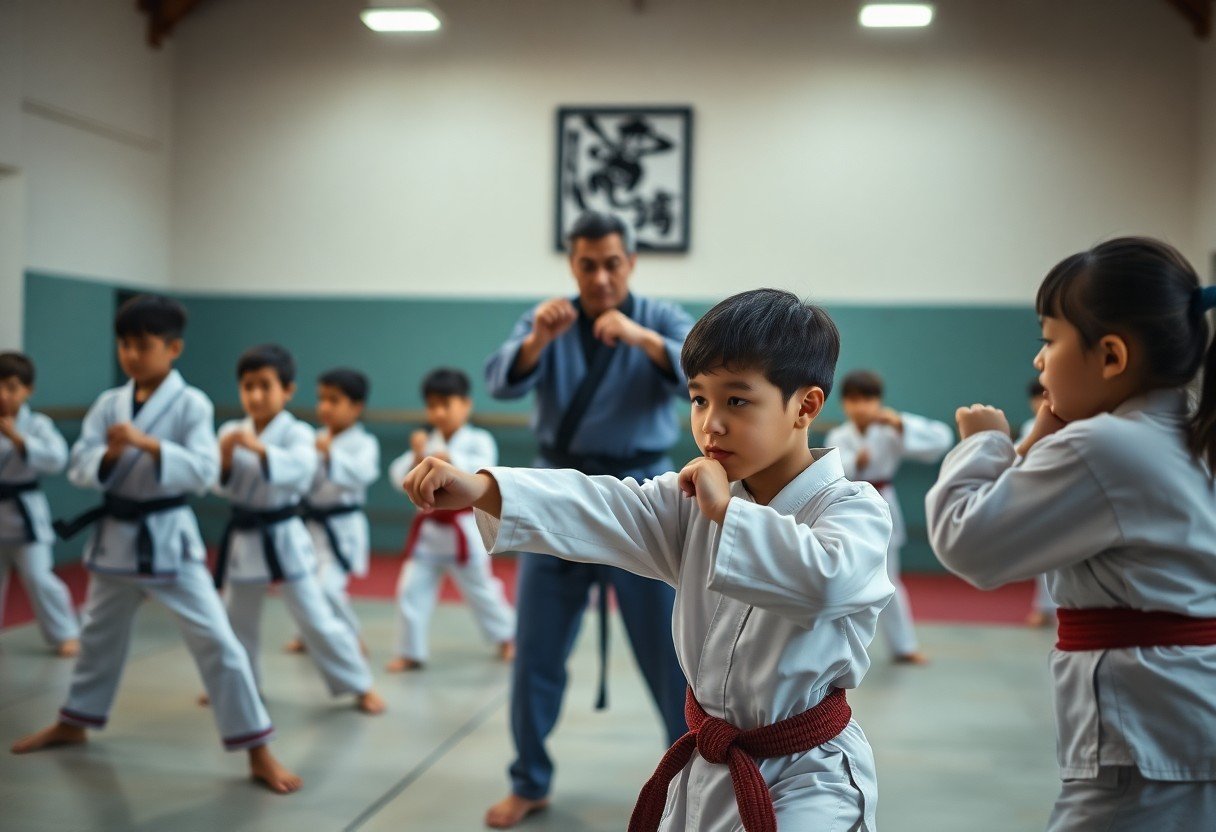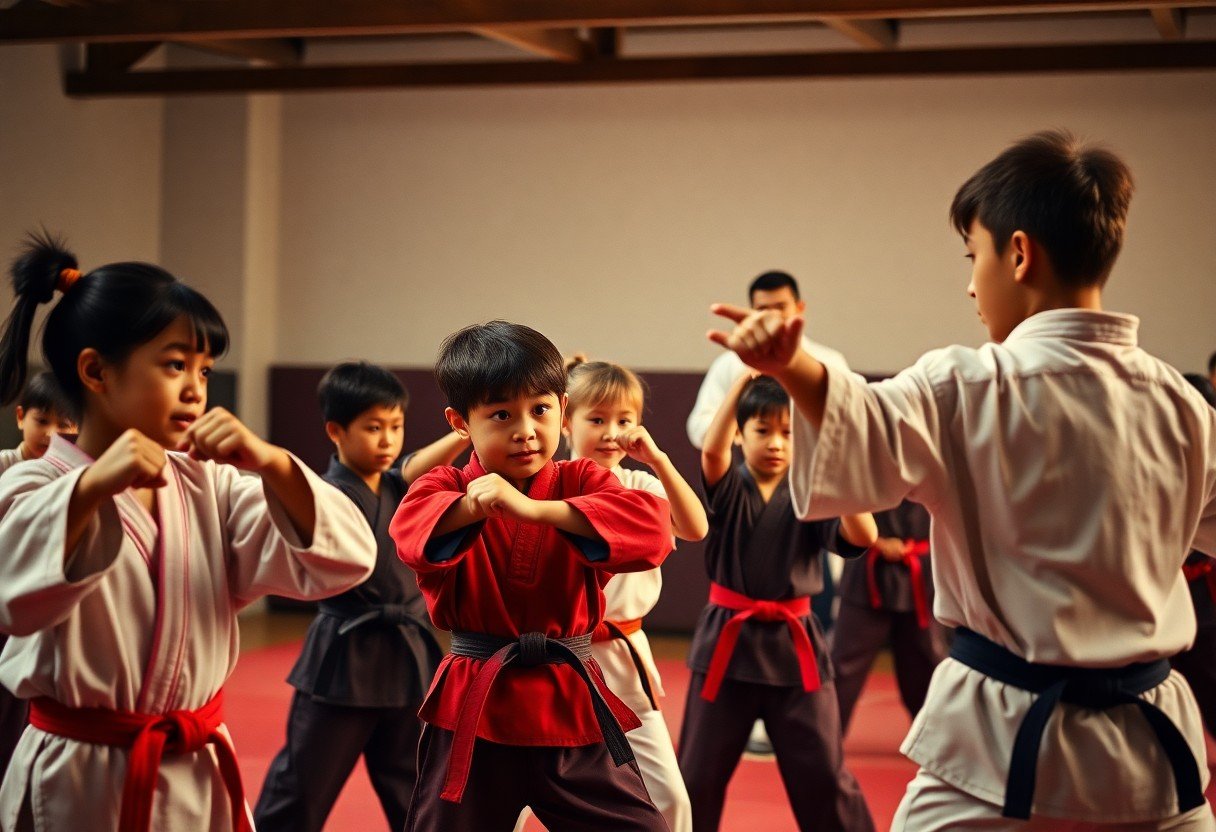Over time, you will discover that enrolling your child in martial arts classes can significantly impact their understanding of hard work and perseverance. Through structured training, children learn to set goals, overcome challenges, and develop a strong sense of discipline. The repetitive nature of practising techniques instils a mindset that embraces effort and resilience. Moreover, as they progress through ranks, your child will not only gain confidence but also recognise the value of dedication and commitment in achieving their aspirations.
The Philosophy of Martial Arts
A well-rounded understanding of martial arts goes beyond just physical techniques; it encompasses a deep philosophy that emphasises self-improvement, perseverance, and the development of character. Engaging in martial arts cultivates an environment where you learn not only to defend yourself but also to embody principles that promote personal growth and fulfilment.
Principles of Discipline
Principles of discipline are vital in martial arts, teaching you the importance of setting goals and consistently working towards them. This process fosters a mindset of responsibility and dedication, encouraging you to push through challenges and overcome obstacles.
Emphasis on Respect
Along with discipline, respect plays a central role in martial arts training. You are encouraged to honour your instructors, peers, and even your opponents, fostering a culture of mutual understanding and cooperation.
Hence, this emphasis on respect not only strengthens relationships within your training environment, but it also equips you with the ability to interact positively in wider society. You learn to appreciate diverse perspectives and understand the importance of humility and tolerance in both martial arts and daily life. This foundation ensures you navigate conflicts with grace, fostering a sense of community and belonging that transcends the dojo.
Building Persistence Through Training
Some children discover their inner strength through martial arts training, which fosters persistence and resilience. As they face physical and mental challenges in each session, they learn the value of dedication and commitment. This ongoing experience can be transformative, as highlighted in Transforming Children’s Lives: The Power of Martial Arts in …. With every attempt, they build the tenacity needed to overcome obstacles, laying the groundwork for success in all areas of their lives.
Overcoming Challenges
To thrive in martial arts, your child will inevitably face challenges that test their limits. Each time they push through these obstacles, they develop a stronger sense of perseverance and resolve. This continuous cycle of confronting difficulties and achieving progress instils a resilient mindset that can be applied beyond the dojo.
Goal Setting in Classes
One significant aspect of martial arts training is the emphasis on setting and achieving goals. This process not only helps your child focus on their progress but also instils a sense of purpose and accomplishment.
Due to the structured nature of martial arts classes, your child is encouraged to set both short-term and long-term goals. These milestones, such as mastering a new technique or earning a belt promotion, provide tangible objectives to strive for. By working towards these goals, they learn the value of discipline and focus, while also experiencing the profound satisfaction of achieving results. This structured goal-setting approach translates into other areas of their life, empowering them to take charge of their ambitions with confidence.
The Role of Instructors
Even the best martial arts programme flourishes under the guidance of skilled instructors. These professionals not only impart techniques but also serve as role models, instilling a strong work ethic in their students. Their experience allows them to tailor lessons to your child’s individual needs, ensuring they grasp the importance of perseverance and dedication.
Mentorship and Guidance
An effective martial arts instructor acts as a mentor, providing both practical skills and emotional support. They motivate you to push beyond your limits while offering constructive feedback. This relationship fosters trust and confidence in your abilities, illustrating that hard work is the key to success, both on and off the mat.
Creating a Supportive Environment
On top of mentorship, the importance of fostering a positive atmosphere cannot be overstated. In a supportive martial arts class, you’ll find that collaboration and encouragement are paramount, enabling students to thrive as a community. This collective spirit not only boosts self-esteem but also reinforces the values of respect and teamwork.
It is imperative that martial arts classes promote a supportive environment where every student feels valued. Such settings allow you to practice without fear of judgement, enhancing your learning experience. Instructors play a pivotal role in creating this atmosphere by encouraging positive interactions and celebrating individual achievements. Through this nurturing space, you will be more likely to embrace challenges, thus reinforcing your belief in the benefits of hard work and perseverance.

Developing a Strong Work Ethic
To cultivate a strong work ethic in children, martial arts classes are invaluable. Through rigorous training and a structured environment, your child learns the significance of perseverance and commitment. Engaging in these classes teaches them that success is a result of consistent effort and determination. For further insights, explore 7 Ways that Martial Arts Classes Improve your Child’s Self-Discipline.
Consistency in Practice
Above all, consistency in practice is important for your child’s development in martial arts. Regular attendance to classes allows them to build on their skills progressively, reinforcing the notion that excellence comes from sustained effort.
The Importance of Focus
An environment that emphasises focus enhances your child’s ability to concentrate on their tasks. By training in martial arts, they learn to channel their attention effectively, which not only benefits them in the dojo but also in their academic and personal lives.
Ethic plays a fundamental role in empowering your child’s ability to stay engaged during training sessions. With strong focus, they can quickly absorb techniques and improve their performance over time. This enhanced concentration fosters a sense of discipline and encourages them to set goals and work diligently towards achieving them, which forms a robust foundation for their future endeavours.
Teamwork and Collaboration
Keep in mind that martial arts classes foster a sense of teamwork and collaboration among children. By training together, your child learns to appreciate the importance of working harmoniously with others. Shared goals, mutual respect, and collective effort are all cultivated in this supportive environment, teaching valuable life skills that extend beyond the dojo.
Partner Drills and Sparring
Around your martial arts classes, partner drills and sparring promote a unique bonding experience. Engaging in these activities helps children understand the significance of cooperation, trust, and effective communication. Through practical application, they learn to support one another while enhancing their own skills, building camaraderie that lasts a lifetime.
Learning from Peers
At martial arts classes, the opportunity to learn from peers is invaluable. Engaging with fellow students not only fosters a sense of community but also encourages shared experiences and mutual teaching. When your child witnesses others overcome challenges or achieve success, it inspires them to push their own boundaries.
For instance, when your child observes a peer execute a challenging technique or display determination, it creates a motivating atmosphere that encourages positive reinforcement. This peer dynamic promotes healthy competition, as each student aims to improve and learn alongside their classmates. Importantly, understanding that they can rely on their partners also instils a sense of responsibility in your child, as they must support one another throughout their training journey.
Life Skills Beyond the Dojo
Not only do martial arts classes help children learn discipline and respect, but they also teach valuable life skills that extend beyond the dojo. Your child will develop perseverance, focus, and a strong work ethic, allowing them to tackle challenges in various areas of life. Through consistent training, they learn to set goals and commit to achieving them, preparing them for future success.
Application in Academic Settings
The skills gained from martial arts can significantly enhance your child’s academic performance. As they practise concentration and discipline, they become better equipped to manage their studies, leading to improved grades and a greater appreciation for the learning process.
Social Skills and Confidence
Confidence is another key benefit your child will gain through martial arts. As they spar and cooperate with peers during training, they will learn effective communication and teamwork skills, creating a solid foundation for social interaction.
Application of these skills in real-life situations can have a profound impact. Your child will find it easier to engage in conversations and express themselves, building meaningful relationships with their peers. As they face challenges in group settings, the self-assurance they cultivate through martial arts will empower them to navigate social dynamics with ease. Ultimately, the confidence developed in the dojo translates to enhanced social interactions, fostering lasting friendships and enhancing your child’s overall wellbeing.
Summing up
As a reminder, martial arts classes instil the value of hard work in children by providing them with structured routines and challenges. You witness their growth as they learn to set achievable goals, practice consistently, and persevere through difficulties. This journey fosters a strong work ethic that transcends the dojo, equipping your child with the resilience and determination needed to tackle various life challenges. Ultimately, the lessons learned in martial arts extend far beyond physical skills, shaping young minds into disciplined and hardworking individuals.
FAQ
Q: How do martial arts classes instil the value of hard work in children?
A: Martial arts classes are designed to challenge students both physically and mentally. Through structured training sessions, children learn that progress comes not just from natural talent but from consistent effort and dedication. Each lesson emphasises the importance of perseverance as students work to master techniques, resulting in a strong understanding of how hard work leads to improvement and success.
Q: What role does goal-setting play in teaching children about hard work in martial arts?
A: Goal-setting is a foundational aspect of martial arts training. Instructors encourage children to set both short-term and long-term objectives related to their skills and belt progression. By working towards these goals, children experience firsthand how focused effort and diligence are necessary for achieving desired outcomes, reinforcing the concept that hard work pays off.
Q: Can martial arts help with overcoming challenges and setbacks?
A: Yes, martial arts training often involves facing challenges, whether it be learning a complex move or dealing with a sparring opponent. Instructors guide students on how to approach these challenges with a growth mindset, teaching them that setbacks are a natural part of learning. This environment fosters resilience and determination, demonstrating that hard work is vital when encountering difficulties.
Q: What impact does the discipline required in martial arts have on a child’s work ethic?
A: The discipline required in martial arts goes beyond physical training; it includes respect for instructors, fellow students, and the training environment. This discipline encourages children to take their commitments seriously and strive for excellence in their efforts. As they practise and adhere to the principles of martial arts, they develop a robust work ethic that is transferable to other areas of their lives, including academics and personal pursuits.
Q: How do instructors reinforce the importance of hard work during classes?
A: Instructors play a vital role in reinforcing hard work through positive reinforcement and constructive feedback. They celebrate students’ achievements, no matter how small, and provide guidance on areas for improvement. This combination of encouragement and accountability motivates children to put in the effort required to excel, ensuring they internalise the lesson that hard work is necessary for success in martial arts and beyond.



